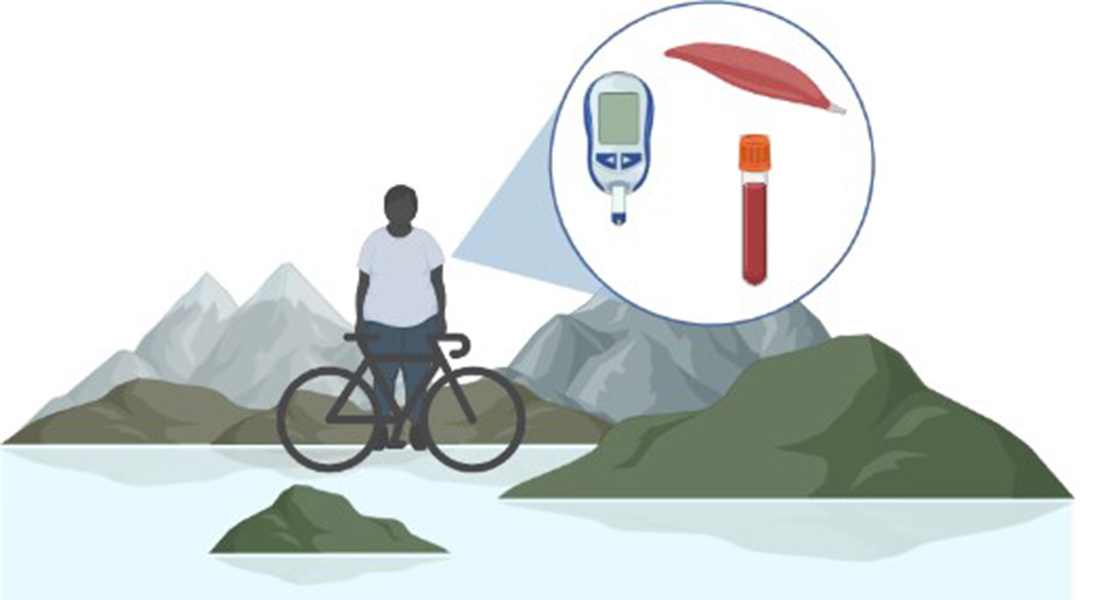PhD defence: Regulation of glucose metabolism by physical activity and hypoxia in people at risk of developing type 2 diabetes

Estelle De Groote
PhD thesis
Type 2 diabetes is a chronic metabolic disease associated with increase in patient mortality. Exercise has been shown to be a good strategy to prevent the onset of T2D. According to previous studies, it has been observed that hypoxia optimizes the effect of exercise on glucose metabolism. We therefore decided to investigate whether environmental hypoxia could potentiate the effects of exercise training on glucose metabolism in individuals at risk of developing T2D.
We drew three different conclusions depending on the type of exercise, ranging from improved glucose tolerance following hypoxic training to reduced tolerance following acute exercise in hypoxia. No clear mechanism was identified to understand the different results obtained. Indeed, no differences were observed between hypoxia and normoxia, either in the signaling pathways involved in the regulation of glucose at the level of skeletal muscle or more systemically by the analysis of extracellular vesicles.
2021, 230 pages.
Time
5 July 2021, 15:45
Place
Louvain-la-Neuve, Belgien and online.
Opponents
Professor Bénédicte Schepens (chair), UCLouvain, Belgium.
Professor Louise Deldicque, UCLouvain, Belgium.
Professor Erik Richter, University of Copenhagen, Denmark.
Professor Jean-Paul Thissen, UCLouvain, Belgium.
Professor Sonia Brichard, UCLouvain, Belgium.
Professor Sandrine Horman, UCLouvain, Belgium.
Professor Jonathan Ruiz, University of Granada, Spain.
Professor Bruno Guigas, Leiden University Medical Center, The Netherlands.
Supervisors
Louise Deldicque, Institute of Neuroscience, Université Catholique de Louvain, Belgium.
Professor Erik Richter, Department of Nutrition, Exercise and Sports, University of Copenhagen, Denmark.
The thesis is available for inspection at Nørre Allé 51, DK-2200 Copenhagen N.
